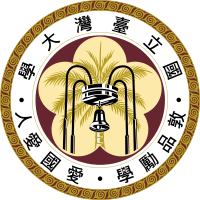Nationalism in Question: The Cases of South Korea and Other Asian Countries
時間: 5/27(Thur.) 15:00-17:00
地點: YouTube線上直播串流
主講人: Alex Taek-Gwang Lee(Professor, Department of British and American Cultural Studies, Kyung Hee University, Korea)
主持人:劉華真(國立臺灣大學社會學系副教授)
報名網址:https://forms.gle/MaeR6ewsQkYzrnpW7
主講人:
Alex Taek-Gwang Lee is a professor of cultural studies at Kyung Hee University in South Korea and a visiting professor at Jamia Millia Islamia University in India. He is a member of the advisory board for the International Deleuze and Guattari Studies in Asia and the board member of the International Consortium of Critical Theory (ICCT). He is also a member of the Asia Theories Network (ATN). He edited the third volume of The Idea of Communism (2016) and published articles in various journals such as Telos, Deleuze and Guattari Studies, Contemporary Political Philosophy and Philosophy Today and chapters in Back to the ’30s?: Recurring Crises of Capitalism, Liberalism and Democracy (2020) and Balibar/Wallerstein’s “Race, Nation, Class”: Rereading a Dialogue for Our Times (2018).
摘要:
In this talk, I will discuss the problem of nationalism and its operations in global capitalism by focusing on the cases of South Korea and other Asian countries. The disparity between a nation-state and capitalism serves as the ideological perversion of nationalism. In Jacques Lacan’s sense, perversion is not a form of behaviour, but a structure which disavows castration. From this perspective, nationalism is the perverse structure of ideology, by which one perceives the lack of a nation (i.e., a primitive father) in a nation-state, at the same time, refusing to accept the reality of this traumatic perception. Nationalism always already presumes the Ur-Geschichte (prehistory) of a nation and bolsters fantasy revolving around the loss of the authentic nation. No doubt, this national narrative would be in trouble with the trans-national and multicultural reality of global capitalism, but the conflict as such functions as an excuse to justify the collective demands of the national authenticity. Fascism is, in this sense, a political movement to forge social rebirth by the restoration of an authentic prehistoric nation in a radical way. Unlike the tenets of fascist politics, liberalism strives to maintain the “justice” of a market and encourages the secularization, or rationalization of the national imaginary. Nationalism should be allowed in the market, as far as it recognizes the castration of an authentic nation. Here is where commodification functions as the crucial mediation between nationalism and capitalism. Commodity-fetishism transforms the ideal of nationalism to an earthly nation-state, i.e., the spatio-temporality of capitalism. The fetishism effect based on commodity structures gives rise to an inversion by which exchange values turn to be use-values. If nationalism is supposed to be exchangeable in the market, it has to castrate its phallus, a nation. Ironically, this exchange value is the use-value of nationalism in a nation-state. Nationalism without a nation, in other words, the castrated nationalism, is nothing less than the condition of multiculturalism. In this sense, the nation-states, the materiality of nationalism, serves as the markets of multiple nationalities in global capitalism.
主辦單位:國立臺灣大學人文社會高等研究院
合辦單位:國立臺灣大學社會科學院亞洲社會比較研究中心、國立臺灣大學外國語文學系
*此講座以英文進行
*此次活動為同步線上Youtube直播。錄製影片將於活動結束後約一個月,上傳到本院YouTube頻道,屆時將會於臉書上公告影片上傳訊息讓觀眾朋友知道喔!
home
首頁
navigate_next
訪問學者
navigate_next
訪問學者演講
navigate_next
Alex Taek-Gwang Lee訪問學者演講Nationalism in Question: The Cases of South Korea and Other Asian Countries



